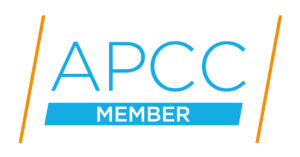Release Date: 25th September 2013
To access the original FCA document, click here.
Summary
The Financial Conduct Authority (FCA) has imposed a £14 million fine on ICAP Europe Limited (IEL) for its involvement in manipulating the London Interbank Offered Rate (LIBOR), specifically the Japanese Yen (JPY) LIBOR rates. This marks the first instance where a broking firm has been penalised for such infractions concerning the benchmark.
From October 2006 to November 2010, IEL was found to have engaged in several improper practices aimed at manipulating LIBOR rates to favour certain traders, particularly at UBS. The misconduct involved IEL brokers, including two managers, who collaborated to skew LIBOR submissions. These actions included sending emails with misleading suggestions to panel banks about the expected setting of LIBOR rates and directly requesting specific submissions from these banks. Additionally, one broker received corrupt payments as rewards for aiding in the manipulation of JPY LIBOR rates.
This case underscores the FCA’s broader objectives to promote and enhance the integrity of the UK’s financial system and ensure that financial markets function effectively. Tracey McDermott, the FCA’s director of enforcement and financial crime, highlighted the severity of the misconduct, noting that it reflects a broader issue of disregard for regulatory obligations and market integrity within the financial services industry. She emphasised that real change would only come when all participants in the financial services industry take responsibility for ensuring that markets operate with integrity.
The extensive nature of the misconduct at IEL was evident as UBS made at least 330 written requests to IEL brokers for inappropriate submissions, with additional undocumented oral requests. The lack of effective oversight and risk management systems at IEL allowed the manipulation to go undetected for years. The firm’s focus on revenue over regulatory compliance contributed to a compliance culture that was insufficient to prevent or detect such wrongdoing.
IEL’s inadequate internal controls were highlighted by their failure to audit the desk involved in the misconduct during the relevant period, and by the ineffectiveness of existing policies and procedures which were unable to address collusion between brokers and clients. Senior management oversight was particularly criticised for failing to detect or report the misconduct, with some managers even complicit in the activities.
In settling early in the FCA’s investigation, IEL qualified for a 30% discount on the fine, which otherwise would have been £20 million. This case was part of a significant cross-border investigation, involving cooperation with the US Commodity Futures Trading Commission (CFTC) and other US regulatory bodies.
This enforcement action serves as a critical reminder to other firms of the importance of maintaining robust governance and compliance frameworks to prevent manipulative practices and to uphold the integrity of financial benchmarks.












